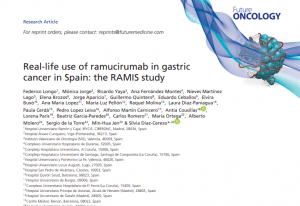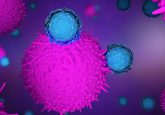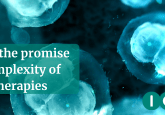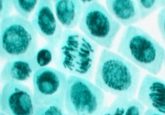Real-life use of ramucirumab in gastric cancer in Spain: the RAMIS study

A recent observational, retrospective single cohort study published in Future Oncology investigated the clinical characteristics and the treatment patterns of patients with advanced gastric cancer (AGC) or gastro-oesophageal junction adenocarcinoma (GEJ) treated with ramucirumab in Spain. A total of 317 patients treated with ramucirumab since December 2015 were included with 93.7% being initiated on ramucirumab as combination regimen and 6.3% prescribed monotherapy regimen. The main effectiveness outcomes in these two groups were median PFS and OS 3.9 months (95% CI 3.4–4.3) and 7.4 (95% CI 6.4–8.9) in combination regimen and 2.0 (1.1–2.8) and 4.3 (95% CI 1.9–7.3) in monotherapy, respectively. Multivariate Cox proportional hazards regression models showed that higher hazard of progression was related to monotherapy vs. combination therapy (HR 2.1 [1.2–3.4]), non-measurable vs. measurable disease (1.8 [1.4–2.4]), ECOG1 vs. ECOG0 (HR 1.6 [1.2–2.2], ECOG 2 vs. ECOG0 (HR 2.3 [1.5–3.7]) and ≥3 vs. ≤2metastatic sites (HR 1.5 [1.1–2.0]). The authors concluded that treatment patterns and ramucirumab effectiveness is generally consistent with results of clinical trials and previous real-world studies.
Abstract
Aims: to obtain real-world data on ramucirumab use and effectiveness for the treatment of AGC or GEJ.
Methods: Observational, retrospective study carried out in 20 Spanish hospitals, in patients who started ramucirumab treatment between December 2015 and December 2018. Descriptive analysis was conducted for patients’ characteristics, treatment patterns and effectiveness outcomes.
Results: 317 patients were included (93.7% treated with ramucirumab–paclitaxel and 6.3% with ramucirumab); age 62.5 (11.3) years; 66.9% male. Median PFS and OS were 3.9 months (95% CI 3.4–4.3) and 7.4 (95% CI 6.4–8.9) in combination regimen and 2.0 (1.1–2.8) and 4.3 (95% CI 1.9–7.3) in monotherapy, respectively.
Conclusion: The study findings were consistent with available real-world studies and randomized clinical trials.
Read the full article:
Register to Oncology Central now for the latest journal content





